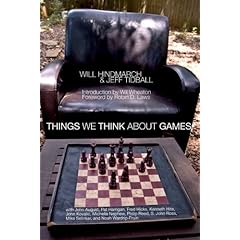My introduction to the Three Kingdoms came from one of the original Romance of the Three Kingdoms computer games from Koei in the late eighties or early nineties. I never quite figured out the game, but was intrigued as to where the story came from.
I continued to interact with the Koei games over the years, both the Romance of the Three Kingdoms series and the Dynasty Warriors series, and my desire to know more about the story behind the games eventually led me to buy a four volume edition of Three Kingdoms.
That was several years ago, and I only recently finished reading them. Written some time in the 14th or 15th century, Three Kingdoms is a historical novel, and can be a difficult read at times. It certainly doesn't flow the way that modern novels most often do.
It's also difficult to tell just what the focus of the novel is until you are quite a ways into it. The cast of characters is enormous, and the entire first volume is largely a prologue to what eventually becomes the main story, which is marked by the appearance of the character of Kongming.
After that, the narrative picks up quite a bit, as the the story of Kongming is arguably the main plot of the novel. After Kongming’s death, there’s a definite feeling that everything else is epilog, despite being the better part of the fourth volume.
There’s also a feeling similar to that produced in some versions of the Arthurian legend, where you have mundane history leading to an era of larger than life heroes followed by a slide back into mundane history. This is reinforced by the fact that none of the heirs of the actual Three Kingdoms are capable of holding onto the achievements that their predecessors made, and are instead eclipsed and overthrown by a fourth faction that re-unites China.
To give you an indication of how dense this novel can be, the original version of the movie Red Cliff was filmed in two parts that added up to five hours of screen time. The events covered in it take up less than half of the second volume of Three Kingdoms.
Early elements of the wuxia tradition can be seen in many of the battle descriptions. While the battles include huge armies, it is often duels between generals that settle the matter, with a losing general’s side falling into disarray and being slaughtered and/or driven from the field.
These duels are not described in great detail, often consisting simply of a description of the number of passes made between duelists and the final blow that decides the outcome. Sometimes though, unique weapons are named and described, or generals are described as blocking missile weapons with their melee weapons, or they are described as defeating countless regular soldiers.
The only time I can recall a general being killed by a common soldier, that soldier was immediately promoted to become an officer and became a named character in the book. Otherwise, combat with soldiers only served to tire generals, but they would either win through, or be finished off by another general, not the common soldiers.
If you decide to read this, and choose the same version that I did, then I suggest starting with the afterword in volume IV, and reading it up to the point where the author suggests you start reading the novel itself. It will give you a better idea of what the focus of the novel is, and keep you from feeling as lost as I did throughout the first volume.











